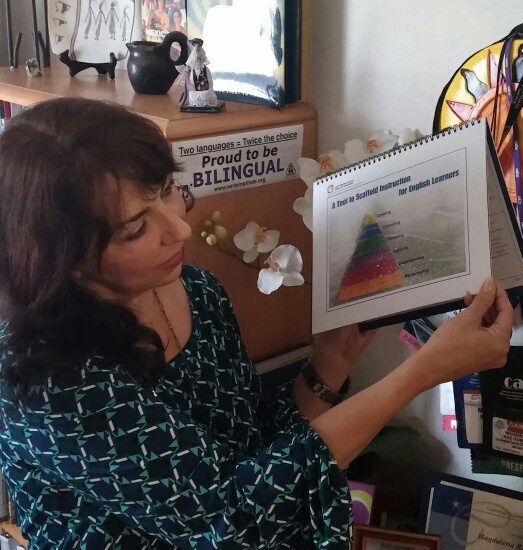
In 1981, then-professor Rafaela Weffer presented her class with excerpts from “The Six-Hour Retarded Child,” a report commissioned by the President’s Committee on Mental Retardation in 1969 that investigated children who appeared intellectually disabled during school hours, but who appear to function normally the rest of the time. It focused on inner-city education— specifically on the experiences of minorities, because English language learners were often categorized as intellectually disabled—and the impact of such labels on behavior.
The report was dated when Magdalena Ruz Gonzalez (MED ’82), project director for the multilingual academic support unit at the Los Angeles County Office of Education (LACOE), first studied it in Weffer’s class, but she still uses it in her professional development sessions. “We talk about these students who appear to be dysfunctional, but who can handle life skills, and the parents who are unhappy with the system,” Ruz Gonzalez explains. “Then, I ask, ‘When do you think this took place?’ The class thinks it’s recent because it’s still applicable today.” Lest the participants become discouraged at the lack of progress, Ruz Gonzalez ends the activity on a high note. “I tell them that they are the ones who can change the system,” she says. “‘Each one of you can make a difference; are you ready?’”
Ruz Gonzalez provides professional development and certification classes, as well as oversees Title III federal requirements, for English learner programs. One of the goals is to create more dual immersion programs in schools across Los Angeles County’s 80 districts and more than 300 charter schools. To do this, she brings those interested in starting dual immersion programs to visit schools with mature dual immersion programs. “The network helps promote the notion that dual immersion programs are a good thing,” Ruz Gonzalez says. “It’s good for the kids because when they get to high school, they are taking AP foreign language classes. We support this because it’s part of the 21st-century skills that we want our students to have.”
Her career spans classroom and administrator roles, which gives Ruz Gonzalez insight into how best to structure these programs. While teaching first and second grades in the 1980s, she was successful using sentence frames and question prompts. Her idea evolved into “A Tool to Scaffold Instruction for English Learners.” The booklet, which is available through LACOE, has sold more than 13,000 copies in less than a year and is being translated into both Spanish and Mandarin for use in dual immersion programs. “This tool is being used in classrooms throughout the state of California—even universities are using it in their teacher education programs,” she enthuses.
Ruz Gonzalez honed her education skills while at DePaul. The college’s hands-on approach to learning, stringent clinical requirements, and intensive instruction in report writing continue to help Ruz Gonzalez as she develops clear and concise training materials. As state requirements move toward a more additive bilingual approach to education, Ruz Gonzalez smiles, knowing she has been delivering this message for more than 30 years. “We were thinking that we were working with an empty slate,” she explains. “We were ignoring the fact that students come in with their home language. Now, the field is looking to build on the first language. We’re moving in the right direction.”
Text originally published in the Fall 2014 edition of Action in Education
Interested in making a difference like Magdalena? The Department of Leadership, Language and Curriculum prepares urban multicultural professional leaders to work in a variety of education and community settings. The department offers graduate programs in Educational Leadership, Bilingual-Bicultural Education and Curriculum Studies.